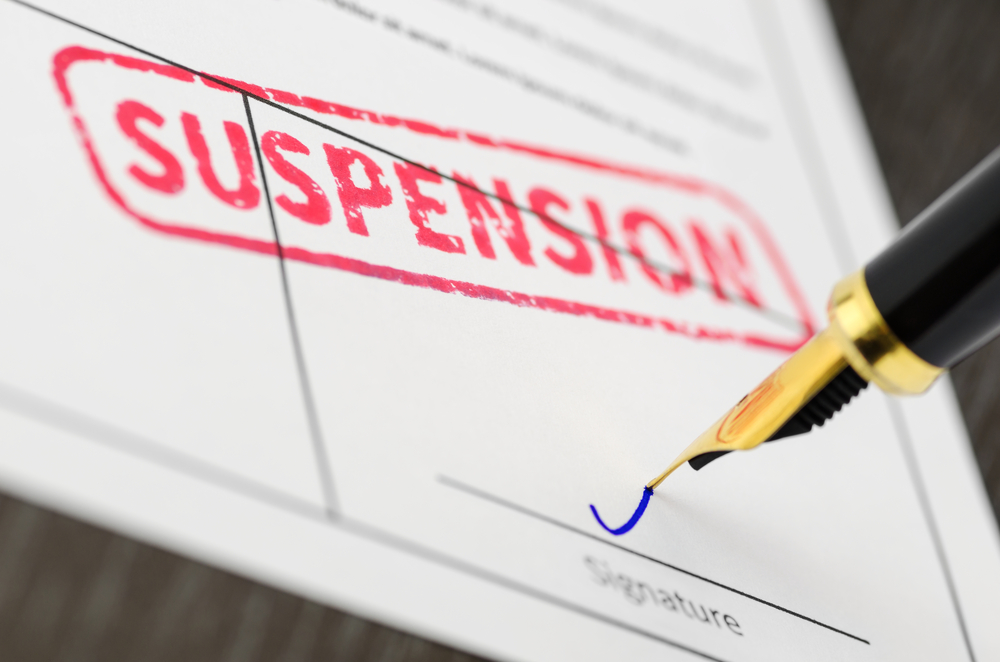Our ‘Top Tips’ for employers to help them to effectively manage employee grievances to contribute to positive working relationships and prevent minor issues escalating into more serious matters.
What is a Grievance?
A grievance is a complaint made by an employee to their employer to resolve workplace disputes, and which requires the employer to take further action. Grievances can be solved by informal discussions, formal procedures, mediation, conciliation or arbitration. We have set out below some general advice on investigating a grievance, conducting a grievance meeting and dealing with any appeal.
Employers should bear in mind that employees who raise a formal grievance are already likely to be feeling upset and it is important to respond appropriately to prevent the situation from escalating.
These tips for effective grievance management are intended to provide employers with a summary of the issues that may need to be considered and is not intended to be a detailed analysis of the law in this area. For advice on a specific case, please contact us via our website or Book a Free Consultation online with one of our specialist employment law advisors.
Initial Considerations When Managing a Grievance
It is best to avoid an antagonistic approach when responding to an employee’s grievance and to keep an open mind. When dealing with an employee’s grievance it is advisable to take the following into account:
- The company’s grievance procedure.
- The Acas Code of Practice on Disciplinary and Grievance Procedures and supporting Acas guide to discipline and grievances at work.
- The Acas guide to workplace investigations.
The first consideration is whether the matter should be dealt with formally under your grievance procedure, or whether informal resolution is a suitable option. You should be guided by the employee’s wishes and by the nature of the grievance raised. For example, if an employee has been offended by an off-hand comment made by another employee, an informal word with the employee in question may resolve the matter sufficiently from both the aggrieved employee and the employer’s perspective. In other cases, involving a more serious breakdown of the relationship between employees, other forms of resolution such as workplace mediation can be appropriate and more effective.
However, where a grievance raises a potential legal issue, you should deal with it under your formal procedure in order to establish whether any action needs to be taken internally and to protect your legal position. For example, a grievance alleging discrimination should always be thoroughly investigated, even if the employee is reluctant for it to be treated as a formal grievance.
Consideration should also be given at an early stage as to whether:
- The grievance raises issues under other policies such as your whistleblowing, bribery, equal opportunities, anti-harassment or bullying, or stress at work policies, and whether any of those policies provide a more appropriate procedure.
- The employee has a disability and, if so, whether you should make any reasonable adjustments to the grievance process to help ameliorate any disadvantage caused to them by their disability.
- The grievance raises issues that could potentially result in disciplinary action against another employee or employees.
- If the matter needs to be dealt with as a formal grievance and requires investigation, you should ensure that a fair and balanced investigation into the grievance and the surrounding circumstances is carried out.
Appoint a Grievance Investigator
When deciding who should investigate the grievance, you should take into account the seriousness and complexity of the matter and the nature of the grievance. For example, if discrimination or harassment is alleged, an investigator who has up to date equal opportunities training should ideally be appointed.
In many cases, an appropriate line manager or someone from HR could carry out the investigation. However, if the evidence to be investigated is serious or complex, it would be desirable to appoint someone more senior or experienced. It is important that the investigator is not involved in any way in the issues raised in the grievance.
The Grievance Investigation
An investigation is a fact-finding exercise to collect all the relevant information on the issues raised in the grievance. A properly conducted investigation will enable you to make an informed decision on the grievance after a full consideration of all the relevant facts. Making a decision on a grievance without first completing a reasonable investigation could potentially make that decision unfair and leave the business vulnerable to legal action.
An investigatory meeting with the aggrieved employee will usually be required at an early stage. This will help the investigator establish the issues surrounding the grievance, what other witnesses need to be interviewed and what evidence needs to be obtained.
Any investigatory meetings to interview the employee or other witnesses should be held in private and notes should be taken of the meeting. The number of witnesses should be restricted to the minimum required to establish the facts surrounding the grievance. It is good practice for the investigator to prepare written witness statements and ask the witnesses to approve these before the investigation is concluded.
In addition to interviewing witnesses, the investigator should consider whether physical evidence, such as CCTV or computer or phone records may be relevant to the investigation.
Once the investigator considers that they have established the facts surrounding the grievance, as far as is possible and appropriate, it is good practice for them to prepare a written investigation report setting out the scope of the investigation, the process followed to investigate and a summary of their findings.
Confidentiality
Confidentiality is important throughout the grievance process, both in relation to the investigator, the meeting chairs, note-takers and any witnesses interviewed. Witnesses should be advised to not discuss the grievance or investigation with other employees or third parties and, where appropriate, reminded of their legal duties of confidentiality. You should make it clear that any breach of confidentiality will be treated as a disciplinary matter. However, the employee should be free to discuss the matter with their employee representative, should they have one.
The Grievance Meeting
A grievance meeting should be held as soon as possible after a grievance has been received. In some cases, it will be appropriate to hold the meeting shortly after receiving the grievance and then adjourn the meeting while the investigation is carried out. This approach may be particularly helpful if it would be beneficial to clarify the issues raised in the grievance before the investigation starts.
In many cases, it is appropriate for the investigator to also chair the grievance meeting. Alternatively, you may wish to appoint another manager to hear the grievance who has not been previously involved. You should, however, bear in mind that a person in a senior position should be kept out of the grievance process at this stage in order that an impartial senior person is available to hear any appeal.
The meeting should be held at a reasonable time and place, in a private meeting room during the employee’s normal working hours. Sufficient notice should be given for the employee to adequately prepare and make suitable arrangements to attend the meeting. The invitation to the meeting should set out the employee’s right to be accompanied by either a colleague or a trade union representative if they wish.
There should also be someone present to take notes of the meeting, a copy of which should be provided to the employee following the meeting. The note-taker is often someone from HR.
At the start of the meeting, the chair should introduce those present and explain the purpose of the meeting. If the employee is unaccompanied, the chair should remind them again of their right to be accompanied. The chair should emphasise that the primary purpose of the meeting is to work towards a resolution of the employee’s grievance. The chair should try to ensure that the meeting remains conciliatory rather than adversarial and be aware that the employee may find discussing their grievance stressful and upsetting.
The chair should check that the employee is satisfied with the arrangements for the meeting, and has received, read and understood all the necessary documents, including the grievance procedure, any report of the investigation, and any witness statements.
The employee should then be given the opportunity to explain their grievance. The chair should then take the employee through the investigation report and any evidence obtained.
There is usually no need for witnesses to attend the meeting as the matter can be dealt with by witness statements alone. However, if the employee requests that relevant witnesses attend the meeting, you should give consideration to this. The law does not require the chair to allow courtroom style cross-examination of witnesses and this type of adversarial approach is best avoided in dealing with a grievance. However, the employee should be allowed to raise points in response to anything a witness has said.
The employee’s representative (if any) can make statements and ask questions on their behalf. It is not appropriate for the representative to answer questions that have been put to the employee directly, although they may confer privately with them before any reply is given.
Regard should be had to the fact that the employee and any witnesses may be under significant stress during the meeting, and therefore may become visibly distressed and/or aggressive. The chair should be sensitive to this and, if necessary, make sensible use of adjournments for “time out” and to allow the individuals concerned to regain their composure.
At the end of the meeting, the chair should summarise the information put forward by both the employee and the investigation and request any necessary clarification from the employee.
Adjourning the Grievance Meeting
When all parties have explained their position and there are no further questions, the meeting should then be adjourned for the chair to consider what the employee has said. Issues that have been raised by the employee during the meeting may require further investigation and witnesses may need to be re-interviewed if they were not at the meeting. If new information comes to light, this should be given to the employee in writing, with sufficient time to consider it before the meeting is reconvened, at which stage they should be given a chance to respond to it.
Even if the chair has an idea as to the appropriate decision at the end of the meeting, it is always good practice to adjourn in any event to take time for consideration. This makes it less likely the matter will be seen to have been pre-judged.
Obviously, the length of any adjournment will depend on the complexity of the issues to be considered and whether further investigation is needed. It is helpful to give the employee an indication of how long it is likely to be before the meeting is reconvened. If the adjournment is only for a short period, the chair may wish to leave the employee in the meeting room while they consider their decision. However, in most cases it is sensible to adjourn at least until the following day.
The Decision
Once the chair has reached a decision, the meeting should ideally be reconvened and the action you have decided to take to resolve the grievance should be explained to the employee. While the decision must be given in writing in any event, it is usually better first done face-to-face and then confirmed in writing.
In some cases, a grievance investigation will result in disciplinary action being taken against another employee. If this is the case, you should not disclose this information to the employee as this could be a breach of the employer’s duty of trust and confidence to the employee to be disciplined. You should simply reassure the employee that appropriate action will be taken as a result of their grievance.
The employee should be advised of the fact that they have a right to appeal if they are not happy with the original decision. Instructions on how to appeal should be provided, including the name of the person to whom the appeal must be submitted and the timescale for appeal. Five working days is generally considered reasonable but there is no specific time limit in the Acas Code of Practice, so you may wish to take legal advice before rejecting an appeal as being out of time.
Grievance Appeals
So far as possible, any appeal should be heard or chaired by someone who has not been previously involved. Ideally, they should be more senior than the chair of the grievance meeting and, where possible, outside their direct reporting line.
The manager conducting the appeal should have access to the evidence compiled during the investigation and copies of the notes from the grievance meeting. However, they should not confer with the chair of the grievance meeting before the appeal meeting, as this may lead to a biased view being taken before the employee has presented their arguments.
There is no set format for the appeal, provided the employee is allowed adequate opportunity to present their arguments. The chair should aim to be as impartial as possible. If the original meeting was procedurally flawed, the grievance raised a particularly serious issue, or the grievance could result in disciplinary action against another employee, it may be appropriate for the appeal to be conducted as a full rehearing of all the evidence. In other cases, it may be acceptable to simply review the original decision based on the paperwork and any representations the employee may make.
Employees have the same right to be accompanied at an appeal meeting as at a grievance meeting.
Do You Need Assistance?
The specialist employment law team at Employment Law Services (ELS) LTD have extensive experience in advising UK Employers on how to deal with a grievance appropriately to maintain good employee relations and to try to avoid costly and time-consuming tribunal claims. If you need assistance or have any queries about your legal obligations you can call us on 0800 612 4772, Contact Us via our website or Book a Free Consultation online.

 Advice on Settlement Agreements Employees
Advice on Settlement Agreements Employees Advice on Settlement Agreements Employers
Advice on Settlement Agreements Employers







